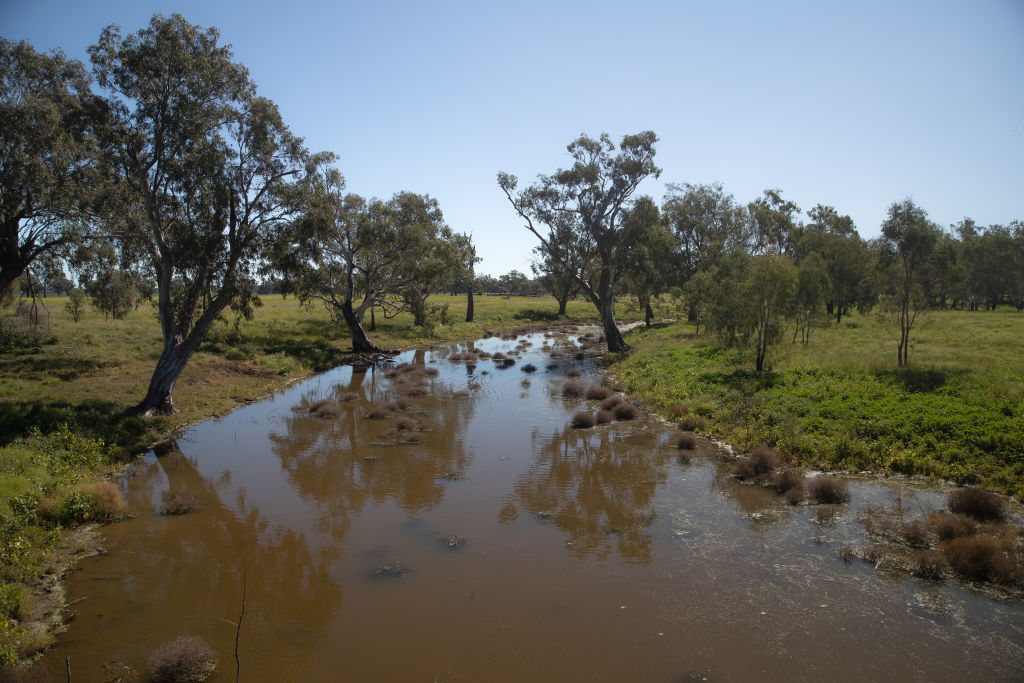Aside from farmers’ skills, a nation’s agricultural potential is dependent on three key variables: good rainfall, plentiful sunshine and secure rights over the land that is being used for farming purposes.
While Australia has plenty of sunshine, it is the driest continent by a considerable distance. However, reasonably secure property rights and a have-a-go attitude have brought Australian farms to be among the most productive in the world. Australian farmers produce about twice as much agricultural output as the population consumes.
“Riding on the sheep’s back” is a hackneyed but not inaccurate description of the Australian success story at least until the past 50 years when mining rose to prominence.
An indispensable part of the success of agriculture has been irrigation. This has severely reduced Australia’s disadvantage of low and highly irregular rainfall. The Murray Darling Basin is almost synonymous with irrigated agriculture in Australia. An annual, but highly variable 32,000 gigalitres of water flows into the Basin. Dams built over the past century or so have allowed about 11,000 gigalitres to be divertible for a range of urban, environmental and irrigation uses. These have created a working river responsible for 40 per cent of Australia’s agricultural output in an area comprising 14 per cent of the national land mass with lower-than-average Australian rainfall.
But, starting 25 years ago, environmental activists made spurious claims that the river was in trouble. Among these claims were that it was facing salinisation and soil erosion.
Even though these were fabrications, they were magnified by the media. Soon after, we saw politicians falling over each other in pandering to the counterfeit claims thereby demonstrating their own virtuousness. Politicians, especially on the left, sought to modify arrangements that have brought great increases in agricultural output while considerably improving the river basin’s recreation value and liveability.
John Howard, as the Prime Minister in 2005, tried appeasing the environmental activists. He proposed a $500 million ‘rescue plan’ that would divert, to environmental uses, 500 of the 7,800 gigalitres of Murray Darling water that was used by irrigators. The then leader of the Opposition, Mark Latham, wanted 1,500 gigalitres diverted; the activists themselves considered this to be ambitious.
Ambitious or not, in 2012, a new set of politicians led by then-Environment Minister, Tony Burke, with little regard for the effect of their actions on productivity, legislated for buy-backs of over 1,700 gigalitres, with funding for additional savings by reducing evaporation etc. That program has been accelerated under the current Minister, Tanya Plibersek.
The current position is that, in pursuit of vastly overstated environmental gains, 22 per cent of the Basin’s water that was previously used for irrigation is or will soon be no longer available. Based on estimates by Frontier Economics, by severely reducing the productivity of the land, the existing plan wipes out some $2 billion a year in the form of losses in agricultural output incurred by irrigators and their employees, contractors and customers. In addition, taxpayers have outlaid over $1.5 billion for engineering works to save water worth only a fraction of this.
Government interventions in the Murray Darling have been introduced to pander to inner city greens whose mindset is that anything that modifies nature has to be combated. As a result, government action is now undermining what were prosperous, regional economies, comprising a key component of Australian agricultural greatness.
The present government continually concocts claims of productivity benefits for its policies. The Treasurer claims, “To be clear, responsible economic management is the government’s defining feature.” While the government recognises people are “doing it tough” and inflation remains obstinately high, it fails to recognise the importance of its own policy settings in creating these unwanted outcomes. Water policy is just one area that, like that on energy, environmental approvals, labour relations and spending in general, is undermining efficiency and living standards. Water policy demonstrates the disconnect between words and actions in the government’s claims to be engaged in “responsible economic management”.
A former senior official at the Productivity Commission and with the Victorian Government, Alan Moran Ph.D is a well-known writer and commentator on energy and other regulatory matters. His website is: www.regulationeconomics.com
By Dr Alan Moran Ph. D



